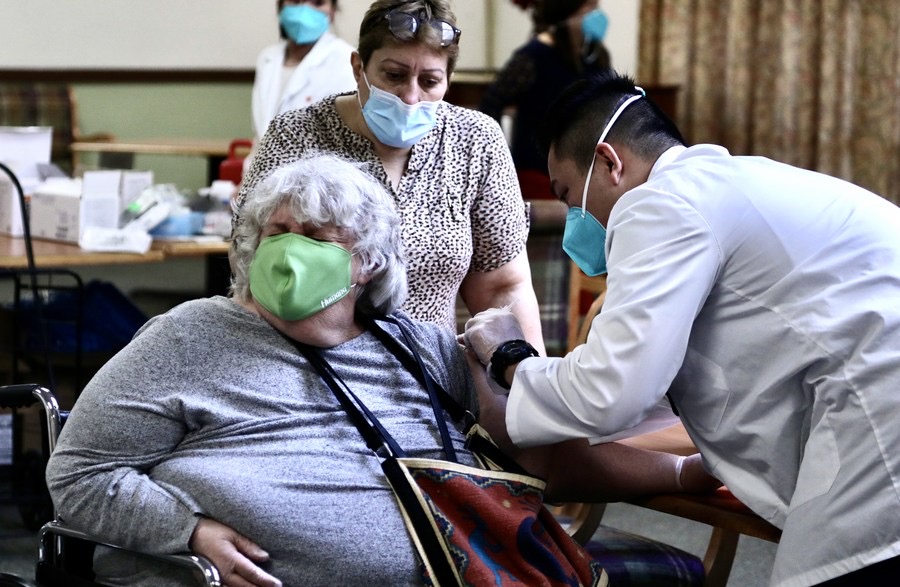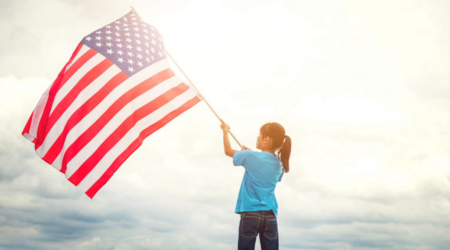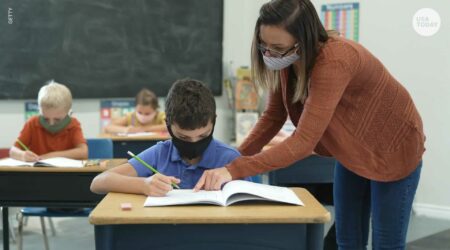By Himanshu Rath
This winter, fresh cases of flu and coronavirus are on the rise again. With past experiences of the pandemic in 2020 and 2021, older people are being asked to spend more time indoors and avoid large gatherings again. Further, Covid-related reports and projections coming from China and other parts of the globe are more disturbing. Older people are once again sliding on the verge of depression because older adults are considered a high-risk population when it comes to being more susceptible to more severe cases of COVID.
The newest sub-variant of Coronavirus, BA.5 is causing COVID infections. According to the U.S. Centre for Disease Control and Prevention (CDC), BA.5 is causing more than 70 percent of COVID infections in the U.S, where only 36 percent of older people aged 65 and older have received bivalent boosters and about 94 percent older people had their initial Covid vaccines. Preliminary data suggest that BF.7 evades antibodies caused by vaccines and prior infection better than any other iteration of the disease.
Once again, the US Administration has prepared the strategy and started supporting community-based organizations in the aging and disability networks to hold accessible vaccine clinics and provide in-home vaccinations, transportation, and other supportive services for older adults and people with disabilities.
An unexpected surge in Covid cases signals that older people are at higher risk right now and it could be a traumatic winter for them. As per doctors, an increasingly growing share of elderly deaths aided by post COVID complications, is an alarming sign for the year 2023.
Though COVID being primarily a respiratory illness, there have been numerous accounts of neurological symptoms like brain fog or lack of focused thinking, memory loss, and depression. It has also a greater occurrence and death rate in dementia patients due to age and associated co-morbidities.
Older people with serious heart conditions, such as heart failure, coronary artery disease, or cardiomyopathies, kidney disease, chronic obstructive pulmonary disease, obesity, sickle cell disease, and type-2 diabetes, etc. are more vulnerable to serious complications from COVID.
Common symptoms
It’s important to watch for possible signs of COVID. A recent study of people with COVID in China found that the average incubation period for the disease is about 5 days. In some people, symptoms developed much later. It is possible to have an infection for quite some time without any known symptoms. Some common symptoms include fever, fatigue, cough, shortness of breath, sore throat, muscle aches and pains, headache, chills, loss of taste or smell.
Prevention is better than cure
If symptoms are mild, self-care measures and resting at home may be all you need to recover. The best way to handle an illness like COVID is to avoid contracting the virus in the first place. While no prevention strategy is fool proof, some strategies are the best bet for avoiding the virus.
Stay home as much as possible. Don’t give in to the temptation to venture out. The fewer people you come into contact with, the better. The less offline social interaction you have, the less likely you are to be exposed to the new coronavirus. Some people can be asymptomatic while having an infection. Such people can be avoided by staying away from others.
Consolidate your trips to the grocery store or pharmacy into as few trips as possible. While commuting, wear a cloth face mask while in public. Maintain a safe distance between yourself and others.
Go for online shopping and other online activities. Clean and disinfect each item you order with sanitizer.
Wash your hands properly with soap and water. If you don’t have access to soap and water, use alcohol-based hand sanitizer. Don’t forget to regularly clean and disinfect household surfaces that might port germs.
Avoid contact with sick people. If someone in the household becomes ill, you’ll need to stay away from them to avoid getting sick, too. Stay in a separate room. Limit the use of common areas.
However, if you experience symptoms for a longer period or have critical symptoms, medical treatment must be taken.
Side effects of social isolation
Social isolation can lead to feelings of loneliness, even under ordinary circumstances. Several studies suggested that almost every second older people feel lonely during social isolation or restrictions on social interaction.
Social isolation adds to the fear of a new disease without a proven treatment or vaccine, which gets even harder. Older people suffer from psychological issues like depression, anxiety, and or other mental health conditions during this situation.
How to deal with the situation
Make an active daily schedule: Try to make a busy daily schedule and a routine according to your day-to-day requirements. With this, you can remain active all the time and keep stress and depression at bay.
Exercise regularly: Include regular exercise in your daily routine. Exercise isn’t just good for your physical health. It’s also a confirmed mood lifter. It can help you relax and feel less anxious. You may take a walk on your terrace, the open surroundings of your house. You may exercise yoga and or aerobics, Dancing may be useful as a good entertainer for you.
Cut short of your news feed and rely on entertainment channels instead: Negative and exaggerated news can bring you down even further. Try to cut short your news feed and go for some entertainment and music channels instead.
Use some reliable apps to connect with your near and dear ones: Modern technology has brought us social media apps like Facebook, Skype, WhatsApp, and Zoom to connect with other people in real-time. Interacting with your near & dear ones, family members, friends or neighbors may help you feel a little less lonely.
Take a virtual tour of popular destinations: Log on to the internet and take a leisurely tour of popular destinations, museums, gardens, and historical places around the world of your choice. You don’t have to spend much money, time, or effort. Just surf and enjoy!
Know the power of meditation: People hardly find time for meditation due to their hectic schedules. There’s no one definite way to meditate. Just pick whatever helps you relax and feel more focused. You may learn different meditation techniques or simply practice some deep breathing exercises when you feel yourself getting anxious.
Unwind your mind and express your creativity: Remember that old hobby and passion you abandoned a few years ago? It might be time to pull out the stained glass, sewing machine, books, or paintbrush and get reacquainted with it. You don’t have to be an accomplished artist, gardener, tailor, writer, designer, or chef to make something with your hands and mind.
It is also important to trust and believe in health professionals and the government’s ability to control the situation. At the same time, governments need to further strengthen public health systems and develop a strategic mechanism to check the speed of fatal covid variants by using modern technology.
At last, we should always remember that when we fight together, we win and survive.
For more info, Contact: [email protected], WhatsApp: +919810030979, Address: Agewell Foundation USA Inc., 62W 47th ST STE 707, New York, NY-10036, www.agewellfoundationusa.org

Himanshu Rath is the head of the Agewell Foundation USA Inc. It is a 501(c)(3) registered Non-Profit initiative, committed to working for the welfare of destitute Old People desperately needing assistance.










